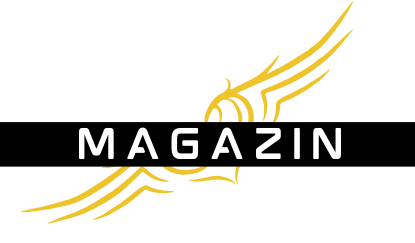In a world that is hurtling forward at breakneck speed, the industry of the future demands more than just innovation—it demands a workforce equipped with the skills of tomorrow. As manufacturers and businesses pivot towards technology-driven landscapes, the ability to adapt, learn, and evolve has never been more crucial. Welcome to the future, where learning is continuous, people become lifelong learners, and the workforce is the powerhouse of progress.
In this comprehensive exploration, we navigate the landscape of training and development as it evolves to meet the needs of modern industries. We delve into how programs are reshaping the future, equipping employees with skills that transcend traditional boundaries. We’ll highlight how education and training are the cornerstones of career advancement and job security in a dynamic world. Join us as we uncover the pathways to becoming resilient and relevant in a rapidly changing work environment.
The Renaissance of Learning in Manufacturing
Manufacturing is not just about assembly lines and production schedules anymore. It’s a thriving domain where innovation and technology converge, demanding a workforce that’s as informed as it is skilled. As we stride into an era driven by automation, artificial intelligence, and the Internet of Things (IoT), the industry requires a renewed focus on skills development.
Gone are the days when learning was confined to textbooks and classrooms. Modern training programs embrace blended learning approaches, combining digital platforms with hands-on experiences. This renaissance in education fosters a culture where learning is dynamic, responsive, and tailored to the career aspirations of each individual.
Manufacturers are investing in adaptive learning technologies that allow for personalized training experiences. These platforms leverage data analytics to understand the unique learning patterns of each participant, ensuring that employees receive content that is not only relevant but also engaging.
As we chart the future of manufacturing, it’s imperative to recognize the value of talent. The industry’s future relies on nurturing a new generation of thinkers and doers. This not only involves imparting technical skills but also instilling a mindset geared towards innovation and continuous improvement.
Navigating New Career Horizons
In the ebbs and flows of the modern workforce, the concept of a job for life is becoming obsolete. As industries evolve, so too do the career paths within them. Understanding this shift is key to navigating new opportunities and securing jobs that align with one’s passion and skills.
Today, people are encouraged to pursue careers that are as diverse as they are fulfilling. This is not a mere trend; it’s a necessity dictated by the pace of technological advancements. The ability to pivot, learn new skills, and adapt is paramount.
For respondents seeking career growth, the focus should be on acquiring competencies that are future-proof. This means exploring fields such as data analysis, cybersecurity, and sustainable practices. Leveraging training programs that offer certifications in these areas is a strategic move towards ensuring job security and potential advancement.
Moreover, the role of mentorship in career development cannot be overstated. By cultivating relationships with industry veterans, aspirants gain invaluable insights and wisdom, accelerating their progress and helping them chart a course through the complexities of the work landscape. {image_content}
Training Programs: The Bedrock of Workforce Transformation
As we stand on the precipice of change, training programs emerge as the bedrock upon which the workforce of the future is built. They are no longer just about skill acquisition; they’re about fostering a culture of innovation, adaptability, and resilience.
In addressing the needs of the industry, training programs are increasingly incorporating soft skills alongside technical prowess. Communication, collaboration, and problem-solving are high on the agenda. These programs are designed to create well-rounded professionals who can thrive in any situation.
With the rise of remote work, training programs have also adapted to deliver content virtually. This flexibility ensures that learning is accessible to employees irrespective of their location, democratizing education and ensuring equal opportunities for all.
Furthermore, partnerships between educational institutions and industries are vital. They ensure that the curricula remain relevant to the current needs of the industry, providing timely updates that reflect the latest advancements in technology and practices. An engaged dialogue between education providers and employers fosters a symbiotic relationship that benefits all parties involved.
In conclusion, as we look towards the horizon, the future beckons with promise and potential. The journey to equipping the workforce for tomorrow is a collective endeavor, one that calls for collaboration, innovation, and a commitment to continuous learning.
It’s about recognizing the value of people and training them to meet the evolving demands of modern workplaces. By embracing modern programs and nurturing a culture of lifelong education, we lay the foundation for a future where both individuals and industries thrive.
Let’s seize the opportunities that the future holds, and together, build a world where skills, talent, and adaptability are the hallmarks of a prosperous and dynamic society.
FAQ
What are the key skills required for the future industry?
The industry of the future values skills such as digital literacy, data analysis, critical thinking, adaptability, and collaboration. These skills are essential to navigate and excel in technology-driven environments.
How can educational institutions prepare students for future industry challenges?
Educational institutions can prepare students by integrating technology into the curriculum, fostering a culture of continuous learning, and offering hands-on experiences through internships and project-based learning.
Why is adaptability considered a crucial skill for the future workforce?
Adaptability is crucial as the industry landscape is rapidly evolving with technological advancements. Employees who can quickly adjust to new tools, processes, and environments will be better positioned to thrive in ever-changing work scenarios.
What role does digital literacy play in the industry of the future?
Digital literacy is fundamental as it enables individuals to effectively use digital tools and platforms, understand and analyze data, and engage in online collaboration, all of which are pivotal in a tech-centric work environment.
Can soft skills impact success in future industries, and if so, how?
Yes, soft skills like communication, teamwork, and problem-solving are critical as they complement technical skills. They facilitate effective collaboration, innovation, and leadership, which are vital in a dynamic industry setting.

